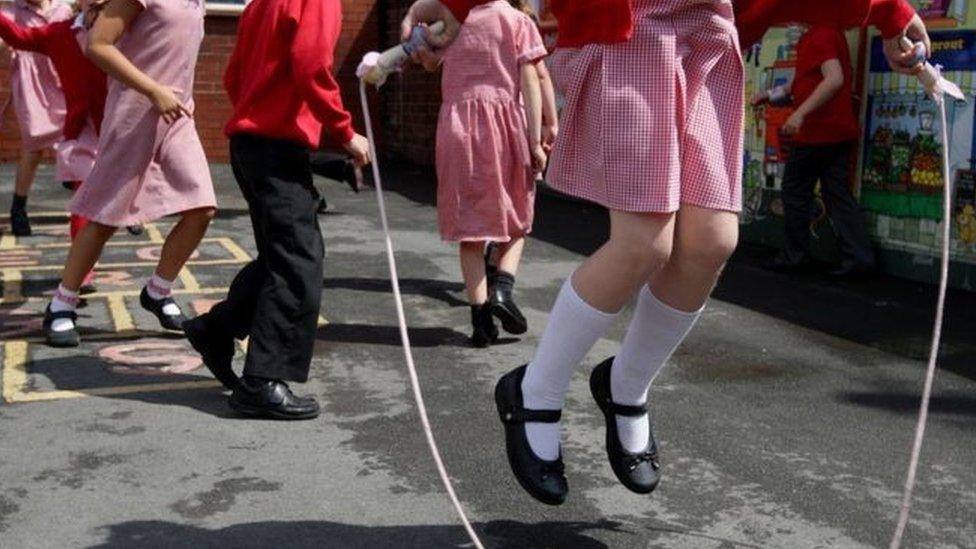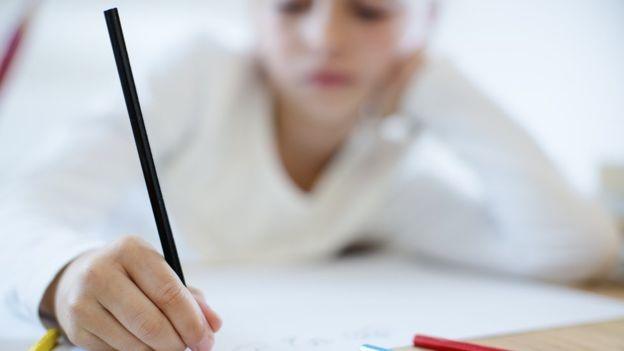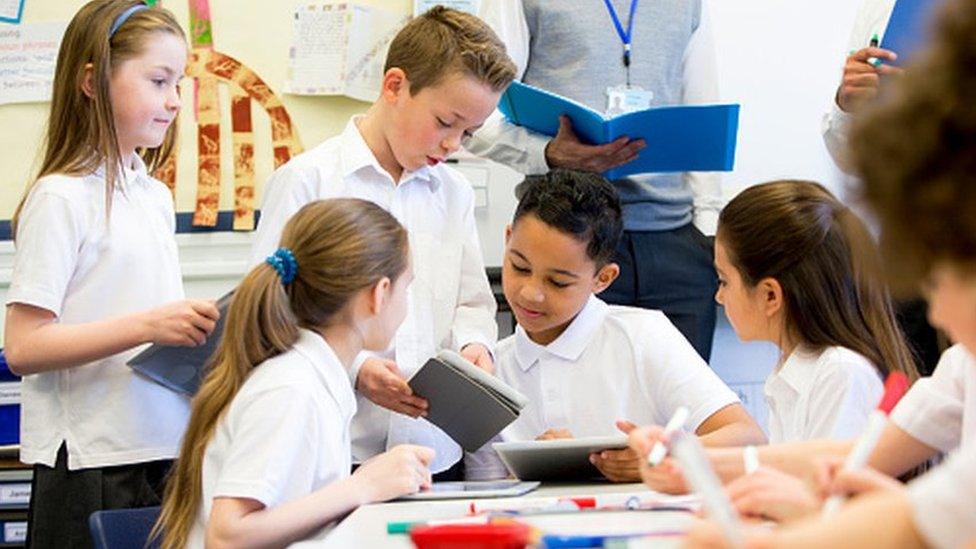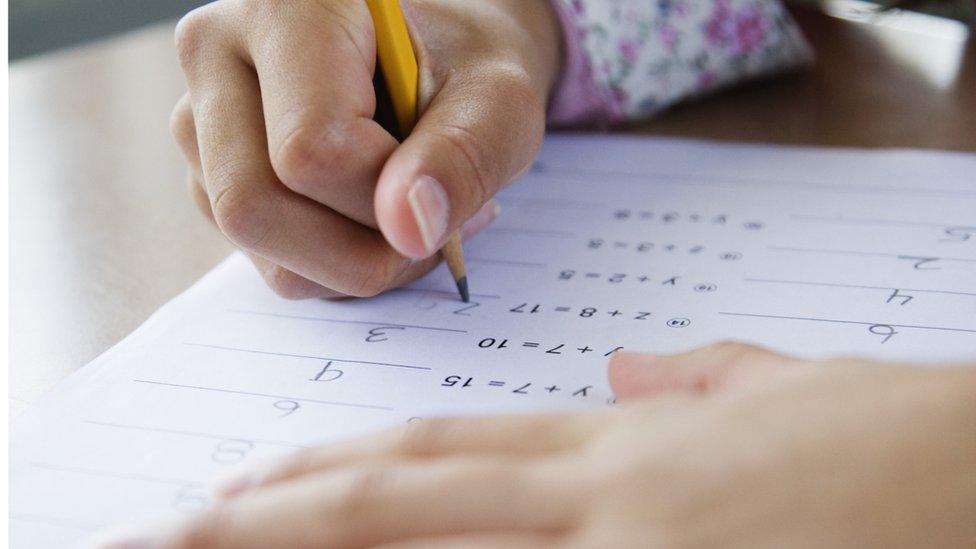Pupils to sit times tables check from 2019
- Published
- comments

Pupils will take the test at the end of primary school
Pupils in England will sit a times tables check, from 2019, at the end of their primary years, Schools Minister Nick Gibb has confirmed.
Multiplication was a "very important" part of a child's mathematics knowledge, Mr Gibb said.
Plans for such a test were in the Conservatives' election manifesto.
Proposals to test 11-year-olds on their times tables were first announced by former Education Secretary Nicky Morgan in January 2016.
However, the move was put on hold when her successor, Justine Greening, said there would be no new national tests or assessments introduced before the academic year 2018-19.
Appearing before the Commons Education Select Committee on Wednesday, Mr Gibb confirmed the times table check would now go ahead.
He told MPs: "I think it is an issue of policy. It is my view that there should be a multiplication check.
"It was in our manifesto in 2015. We think times tables are a very important part of mathematical knowledge."
If a child was trying to perform long multiplication or long division they needed to know their times tables, he added.
"It's why it was in our manifesto," Mr Gibb said. "It's why we are introducing a multiplication check in 2018-19."
The check will be taken by Year 6 pupils in the spring of 2019 - the cohort currently in Year 4 - alongside their national curriculum tests, known as Sats tests.

There concerns for pupils who may struggle with the test
Responding to the news, Anne Watson, emeritus professor of mathematics education at the University of Oxford, expressed concern for pupils who struggled with the test.
"My main concern is what he [Mr Gibb] has in mind for the children who do not pass the test.
"This group will include children with undiagnosed dyslexia, test anxiety, possibly some with slower physical response if this is a timed test, and might even include those who have perfectly good and fast methods of retrieval that do not fit with the test design.
"If this is to lead to retesting ad nauseam until it is passed, what mathematics is going to be missed meanwhile and how much dislike of mathematics is going to be generated?"
Russell Hobby, general secretary of school leaders' union NAHT, said: "We are extremely disappointed that the government are determined to push ahead and implement the multiplication check.
"It is both unnecessary and un-costed and won't tell teachers or parents anything that they don't already know."
Test security breach
Giving evidence to the same panel of MPs before Mr Gibb, a senior official for the exams watchdog, Ofqual, answered questions about two security breaches that affected last summer's primary school tests.
In the first, a version of the Key Stage 1 (five- to seven-year-olds) literacy test was published online, containing live test words.
In the second case, the answers to a spelling, punctuation and grammar test due to be taken by 11-year-olds appeared on a website, where they remained in a password-protected area for several hours before being removed.
Dr Michelle Meadows, Ofqual's executive director for strategy risk and research, told the committee: "We asked ourselves this very question, if we had been monitoring delivery more closely, would we have spotted what were essentially human errors, and we came to the conclusion that we probably wouldn't have."
Ofqual attended meetings about the tests and scrutinised documents to do with their implementation, she said.
"Would we have spotted occasional human error, if you take it in the context of the annual cycle of assessment that's year on year for the whole cohort? We suspect not," she said.
- Published5 July 2016

- Published10 May 2016
